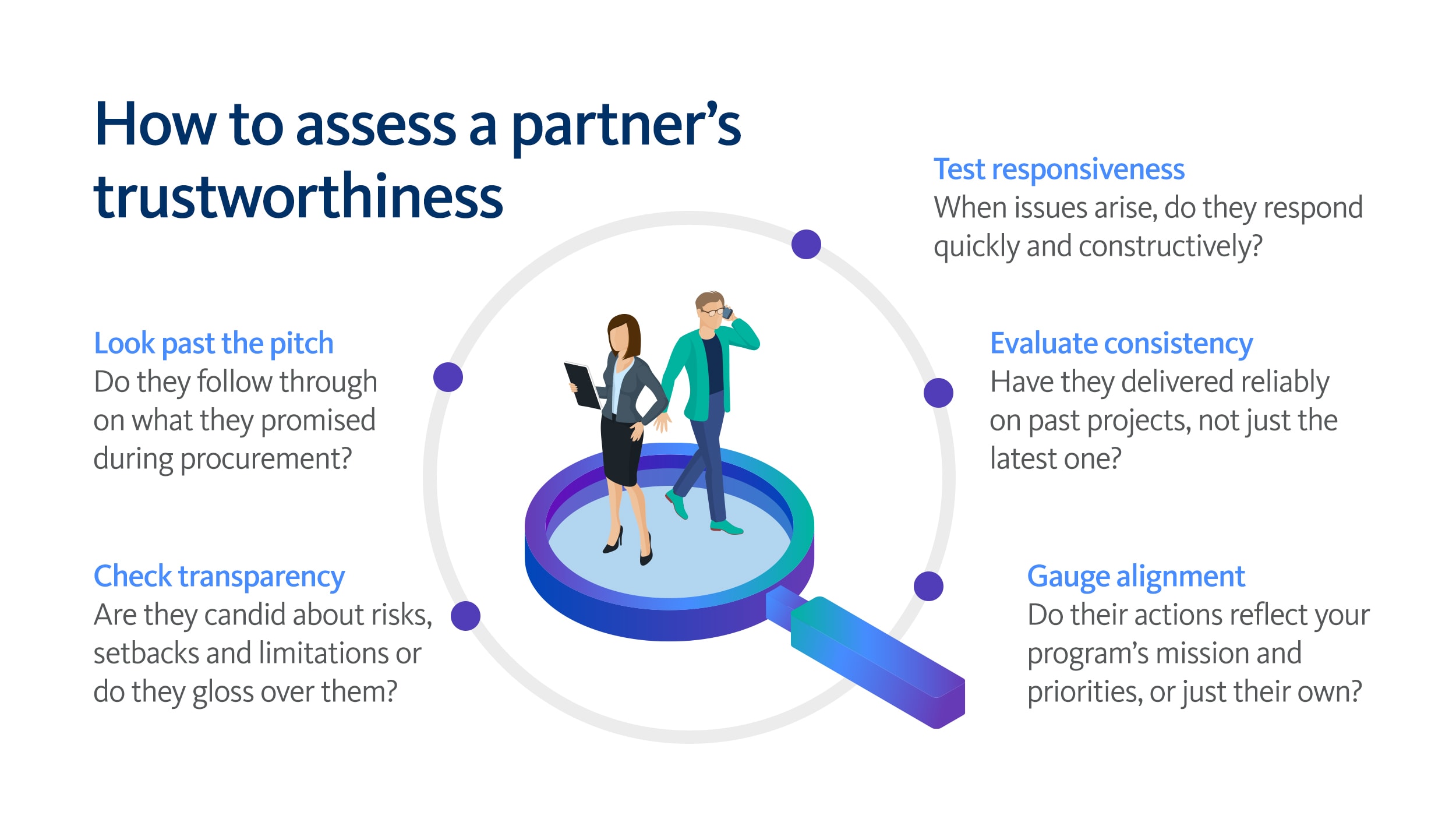For Medicaid, real change takes more than technology
Before code and compliance, there’s something else
Trust is a powerful force. In friendships, it’s knowing someone will follow through. In professional relationships, it’s confidence that your partner will act with integrity, especially when circumstances change. Without it, even the most sophisticated technology or process improvements can falter. With it, organizations can tackle complexity and achieve outcomes that neither side could deliver alone.
For government healthcare programs, particularly Medicaid, a foundation of trust is essential. States are under pressure to modernize legacy systems and deliver better experiences for beneficiaries, often under intense budget constraints. Agencies need vendors they can rely on not just to deliver a product, but to act as a strategic partner who shares in their mission to serve vulnerable populations.
Beyond the honeymoon
The start of any engagement is full of energy and possibility. But the real measure of a partnership isn’t how it begins, but how it performs once the initial excitement fades and real work sets in. In Medicaid system modernization, for example, the early phases often revolve around RFPs, kickoffs and design documents. But once implementation begins, the questions become harder: Are workflows aligning with policy? Is data being exchanged securely across agencies? Is the project adapting to evolving federal requirements?
These are the moments when realistic expectations matter most. Successful partnerships allow space for candid dialogue and adjustment, even when it’s uncomfortable.
Related: The waiting room: Getting work done when things slow down
The value of adjustment
No plan survives unchanged. Medicaid directors know this well: CMS guidance shifts, funding timelines evolve and state legislatures reshape program priorities. Successful partnerships are defined not by avoiding these realities but by adjusting to them together. The best vendors bring proven practices to help states adapt quickly. The best agencies create an environment where collaboration can thrive, respecting the expertise their partners bring while keeping focus squarely on beneficiary outcomes.
Trust built over time
Consistency builds credibility. Delivering on promises again and again earns confidence. Over time, this trust enables both sides to move beyond transactional problem-solving and into strategic collaboration. Instead of asking, “Did you process the claims?” the conversation becomes, “How can we reduce improper payments?” Instead of “Did the system go live?” the focus shifts to “How can this system better support care coordination?”
Within this shift is where innovation happens. It’s what enables states to embrace new models like cloud-native systems, modular Medicaid Enterprise Systems (MES), and integrated data platforms that improve visibility and drive better health outcomes.
Facing challenges together
Every long-term partnership encounters stress. In government healthcare, that could be a new CMS rule on interoperability, a budget shortfall, or the rising cost of specialty drugs straining Medicaid pharmacy programs. The true value of partnership is revealed not in smooth waters but in turbulence. When agencies and vendors bring solutions instead of blame, they emerge stronger—and often more closely aligned than before.
Related: In government healthcare, AI is the tool, not the point
Renewing the relationship
Enduring partnerships don’t remain static. They evolve, refresh, and renew. For Medicaid programs, that might mean expanding capabilities to support new eligibility rules, adding analytics to strengthen program integrity, or implementing self-service portals to improve constituent experience. Renewal is a conscious act: a decision to reinvest in trust, to set new goals, and to continue creating value together.
Client–vendor partnerships in government healthcare are never just about deliverables. They are about building something durable, adaptable and anchored in trust. The strongest relationships thrive not because challenges never arise, but because both sides commit to working through them in good faith. That commitment is what creates lasting value and ultimately helps programs deliver on their mission to support healthier communities.

Transform Medicaid. One trusted step at a time.
Visit us online to connect and streamline operations, reduce costs and improve health outcomes for the people you serve.